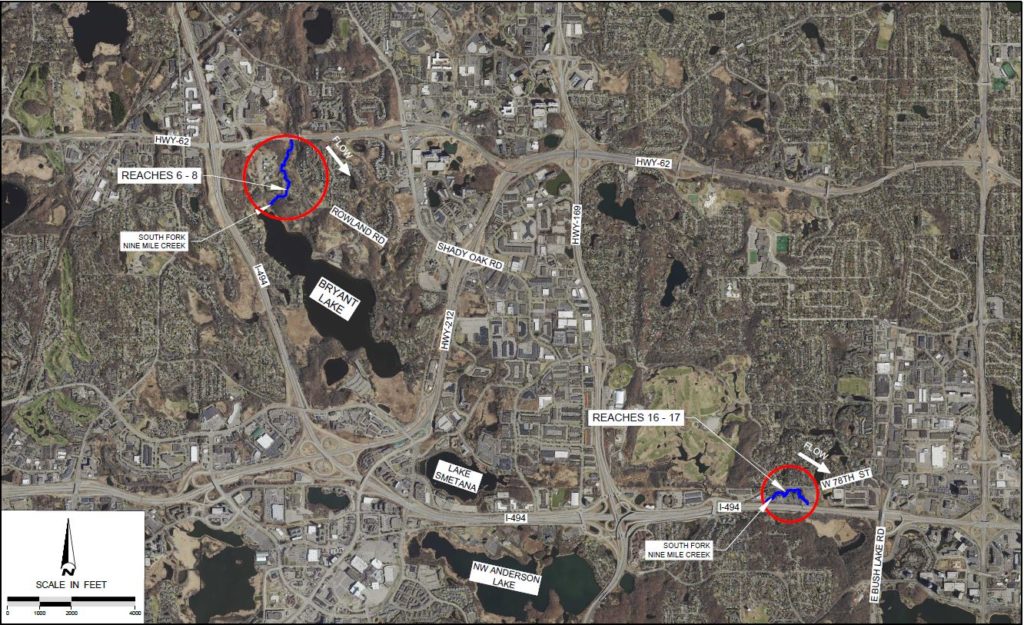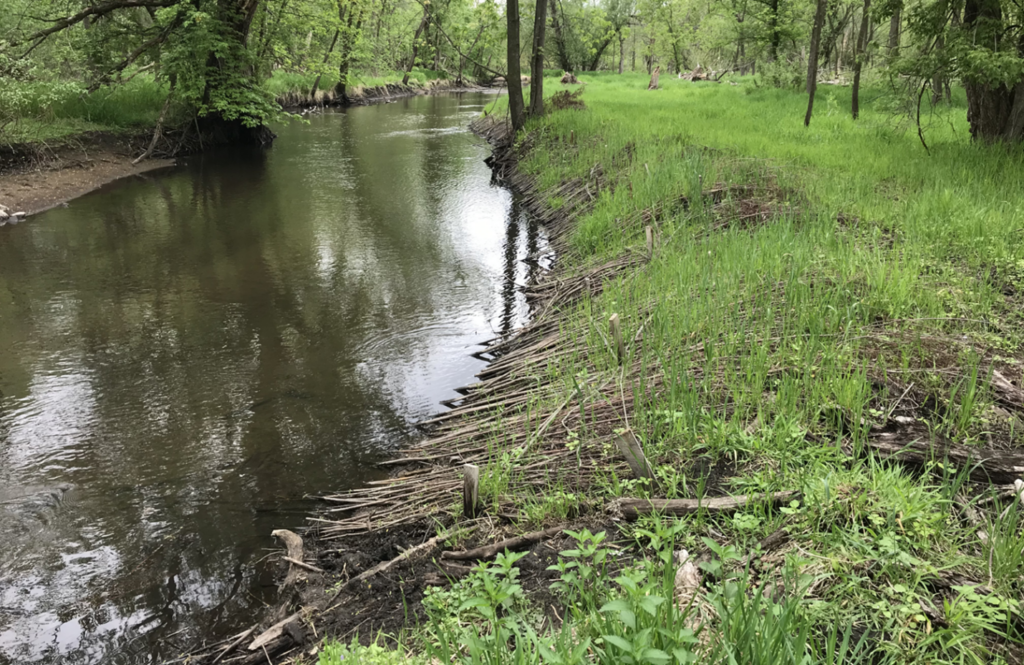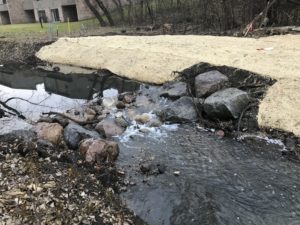Eden Prairie, Bloomington
ABOUT
The Nine Mile Creek South Fork Bank Stabilization Project will restore approximately 5,300 feet of streambank along two stretches of Nine Mile Creek in Eden Prairie and Bloomington.
Purpose
The primary goal of the project is to stabilize the creek channel and restore eroding banks. This will reduce the amount of sediment and nutrients that enter Nine Mile Creek. Secondary project goals include improved upland habitat and increased floodplain connectivity.
Online bids now accepted
Nine Mile Creek Watershed District will be accepting online electronic bids only for streambank stabilization on a portion of the south fork of Nine Mile Creek running through Eden Prairie. Bids will be received by NMCWD via QuestCDN VirtuBid (www.questcdn.com; 952-233-1632 or info@questcdn.com) until 2:00 p.m. CDT, Tuesday, July 30, 2024, and opened immediately thereafter. Our QuestCDN number is 9215298.
See the full notice here: NMCWD Public Notice-South Fork Streambank Project
Project Details
In 2021, the District conducted a Baseline Stream Assessment along roughly 3.3 miles of the south fork of Nine Mile Creek through the cities of Minnetonka, Eden Prairie, Edina and Bloomington. As a result, the District has identified five stream sections, called reaches, where streambank stabilization is needed. These five reaches total roughly 1.1 miles of creek in the cities of Eden Prairie and Bloomington.

In these targeted reaches, the fast flowing creek has deepened the creek bed and disconnected flow from the floodplain. A properly connected floodplain should fill with water periodically to refill wetlands and provide unique habitat for wildlife. Disconnection from the floodplain has contained water flows to the creek banks. This causes fast and heavy creek flows and correspondingly, increases erosion. Our streambank restoration aims to slow down the creek flows to limit erosion, increase flood storage, and improve habitat for fish and other aquatic life. The proposed project will use hardscape—strategically placed rocks to reconnect the creek to the floodplain, and bioengineering—root wads, brush bundles, vegetated rock slopes, and native plantings to stabilize the creek from future erosion.


Some trees will be removed from the surrounding upland to use in the streambank stabilization. The targeted tree removal will increase sunlight and improve streambank vegetation following invasive (mainly Buckthorn) removal.
South Fork Nine Mile Creek Feasibility Study
Public Hearing
The District held a public hearing on August 17, 2022 at the Nine Mile Creek Watershed District Office (12800 Gerard Dr, Eden Prairie, MN, 55346) for oral comments regarding the project design and draft feasibility study. Following this meeting, the Board of Managers ordered the project.
Tentative Schedule
Permitting: Summer 2023
Construction: Tentatively Spring 2024
Questions?
Contact Brett Eidem, Natural Resources Project and Planning Manager, at beidem@ninemilecreek.org or 952-356-1999
